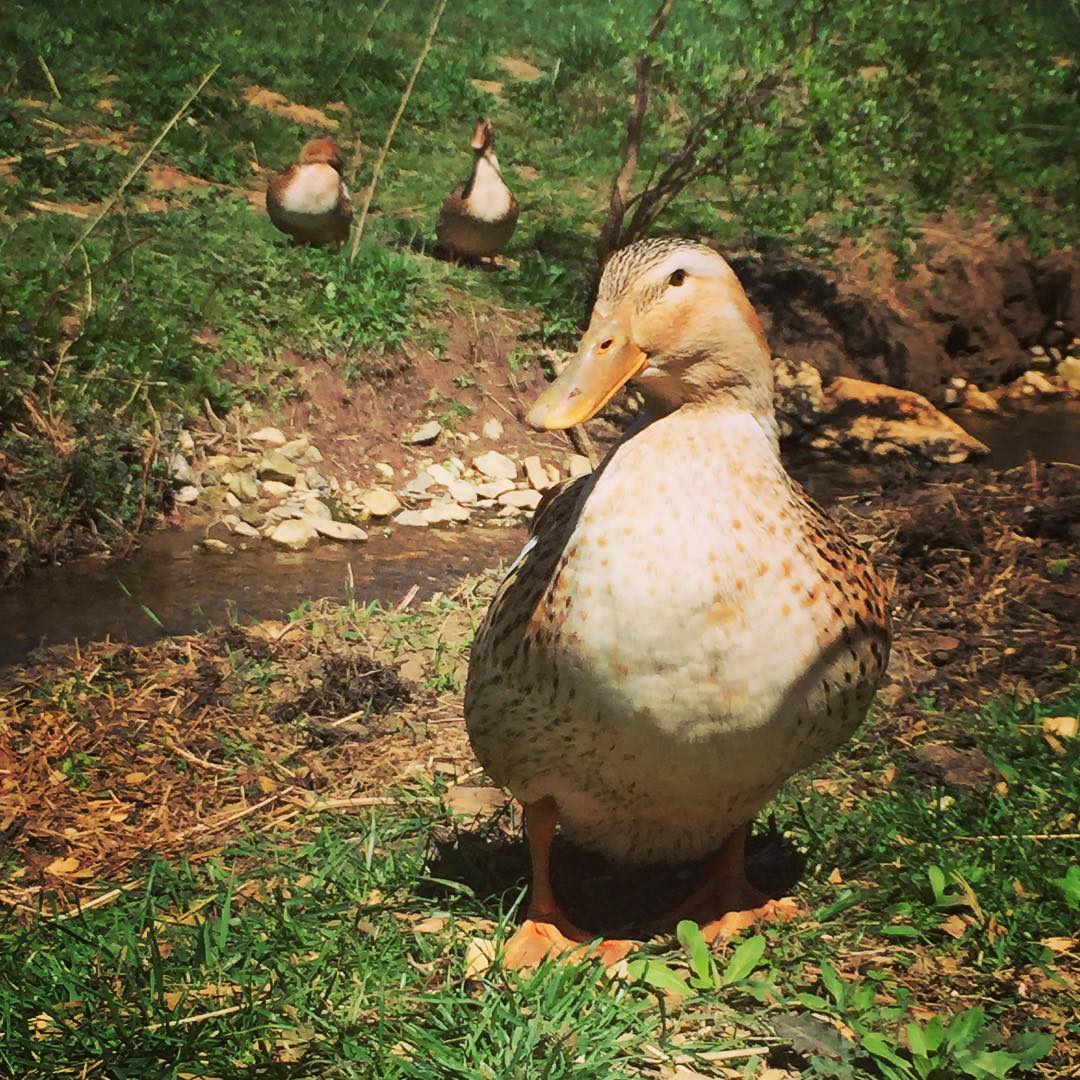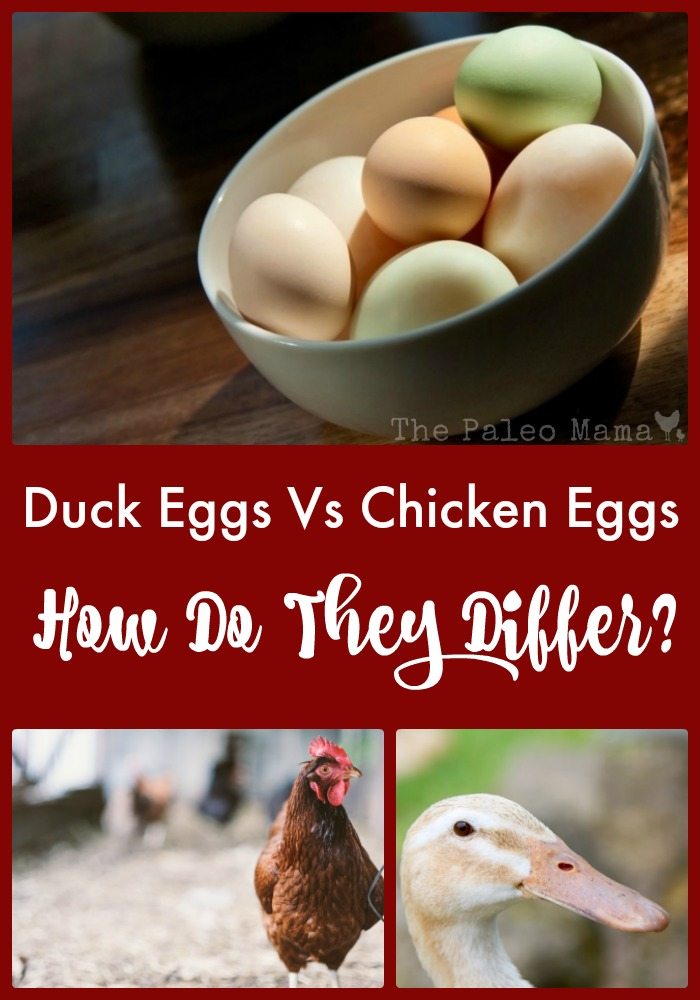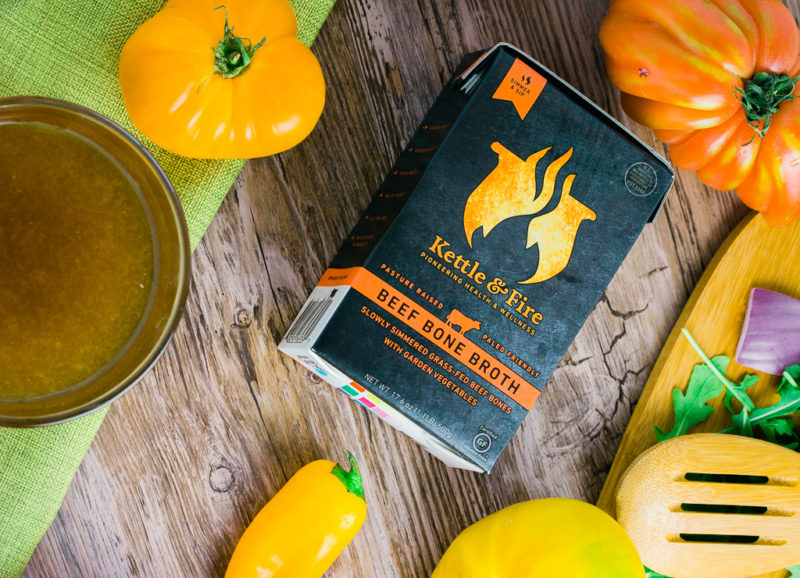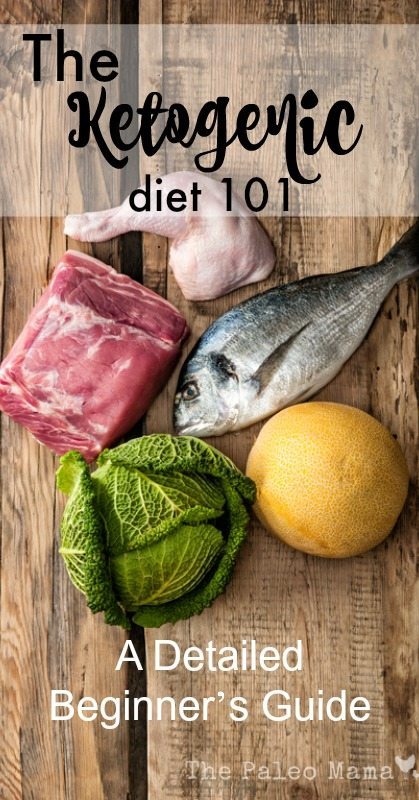There’s nothing more frustrating for the newbie vegetable gardener than to see those pesky garden weeds growing faster than the freshly planted vegetables. For the organic, natural gardener, getting rid of those weeds is not as easy as getting the spray can of chemical weed killer and waging war on those weeds. Weeds are a nuisance, ugly and invasive. They steal water and nutrients, hog the sun, and act like garden bullies. In this blog post I want to suggest some ideas for how to kill weeds naturally to get rid of those pesky garden nuisances.
There are many common household products you can use to make your own homemade garden weed killer. We’ll take a close look at some of these natural solutions and how to use them.
I also have a separate post on using essential oils in your garden.
1. Mulch
You may not have considered mulch a weed killer, but that is just what it is. Putting down a 3-4 inch layer can deprive weeds of the light and warmth they need to survive. Organic mulches will also nourish your soil. Here’s a list of some of the best kinds of garden mulch you can use:
- Shredded or chipped bark. It doesn’t break down as quickly, so may not be the best choice for your garden.
- Chopped leaves. You can shred them by running over them a couple of times with y our lawnmower. They break down fairly quickly and provide plenty of nutrition to the soil.
- Straw. Straw is a popular choice and breaks down fairly quickly. However it may contain weed seeds.
- Pine needles. These look great in gardens, but can be a bit acidic, so avoid them near plants that don’t tolerate acid soil very well.
- Newspapers. You can lay your newspaper right on top of the weeds. Each layer should be about 10 pages thick. Throw a little heavier mulch on top to weight the paper down. The paper will fertilize the soil, cool the roots, and add organic material to the soil.
- Cedar Chips. Naturally repels pests and fleas in addition to keeping weeds down.
2. Common Household Products
Household items can be used to make your own homemade garden week killer cheaply and effectively. These household items are guaranteed to help you get rid of those weeds.
- Boiling Water. Boiling water is more effective than many of your store bought weed killers in wiping out unwanted vegetation. Easy-peasy to do. Put a kettle of tap water on the stove and heat till boiling, then pour on the weeds you wish to kill.
- Vinegar. Vinegar is a great organic homemade weed killer. Either white or cider vinegar will work. The acetic acid in the vinegar works to kill the leaves on the plant but not the root. Vinegar will kill back (kill the leaves but not the root) any plant but works best on young plants because they do not have enough energy stored in the roots to regrow their leaves. My local feed store carries horticulture vinegar which is 20% acidic and works great on weeds!
- Salt. Salt will kill plants and will make the ground unsuitable for future plant growth. On a small scale, you can drop a small pinch of table salt at the base of the undesirable plants.
- Rubbing alcohol. Rubbing alcohol is used around the house because it draws water out and helps to evaporate it quickly. Guess what? If you put it on a plant, it will do the same thing. You will be basically sucking the life blood out of the weed.
- Corn Meal. Corn meal doesn’t really kill weeds, it just stops the weed seeds from ever developing. Corn Gluten is a pre-emergent, which is a fancy way of saying that is it is a seed birth-control. Corn meal scattered around an area will keep any seed in that area from growing into a plant.
- Liquid Dish Soap. You can also add a few drops of liquid dish soap to the liquid homemade weed killers for added effectiveness. The soap is not harmful to the weeds but the soap acts as a sort of bonding agent and will help the weed killers to stick to the weed more effectively.
3. Homemade weed killer recipes
- Hot and Spicy Weed Killer. Some gardeners have developed recipes for weed killers by accident, including this recipe for Hot and Spicy Weed Killer. You can drizzle the boiling, spiced water you use to boil shrimp or crawfish on your weeds, and they will die. To a large pot of water, add a couple of tablespoons of Cajun or Red pepper, and half a bottle of hot sauce. Apply it directly to the weeds, but be careful not to get it on your vegetable plants. You can even check in the Dollar Store to see if they have the premixed boil seasoning for you to use.
- Salt and Vinegar solutions. This solution is all natural, works fast, and doesn’t harm the environment. Put a gallon of white vinegar in a weed sprayer and add about a half cup of salt. Be careful not to get this on your garden plants. It may not kill the roots of taproot weeds, but it is effective on broad leaf weeds.
- Dish Soap weed killer. Not only can you fight soap scum with this homemade recipe, but it kills those pesky weeds as well. To one gallon of white vinegar, add 1 cup of table salt, 1 tablespoon of Dish Soap, and 1 Tablespoon of Pine Sol. Mix it well and pour into a spray bottle, and apply to weeds (avoid your plants).
Jackie’s Homemade Weed Killer Recipe
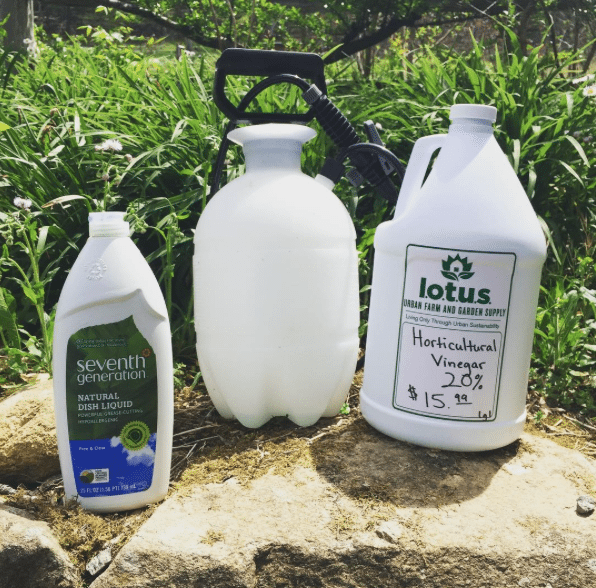
- 2 Tablespoons of Horticulture Vinegar (click here to buy)
- 2 squirts of all-natural dish soap (I use this one)
- One gallon of water
Add all the ingredients to a gallon spray tank and spray on weeds in the morning!
*Horticulture vinegar is very strong and needs to be diluted with water.
Alternatives to homemade weed killers
Most natural weed killers are non-selective, so you do not want to get them on your growing vegetable plants. If your efforts to come up with a home made weed killer end up falling short or just seem to be too much trouble or concern, that doesn’t mean you have to resort to the typical chemicals on the garden department shelves. There are a number of products that offer proven results for those who want to maintain a healthy home environment. You can find recommendations for these natural, organic weed controls online, including here.
Even with the best preventative solutions, you’re bound to have a few weeds in the vegetable garden. Deal with them early before they go to seed and you’ll have fewer weeds the following year. Cultivate the garden soil shallowly with a hoe to kill small weeds. Simply expose their roots to air and sunlight and they die. Hand weed larger weeds. Compost larger weeds or discard them, but don’t leave them in the garden. Some weeds, such as purslane, can regrow if left on the soil.
Nothing can replace a little hard work. I spend 5-10 minutes in my garden every morning and pull weeds before they go to seed. Morning is the best time to weed because the soil is moist, making weeds easier to pull.
All in all, enjoy growing your own vegetables and stay on top of weeds before they make your garden a burden that you let go!

Sources
- https://www.scotts.com/smg/goART3/Howto/how-to-control-weeds-naturally-with-mulch-weed-control-weed-killing-mulch-scotts/34300028.
- https://organicgardening.about.com/od/organicgardenmaintenance/a/Mulch.htm.
- https://www.grit.com/farm-and-garden/using-newspaper-as-mulch.aspx.
- https://homeguides.sfgate.com/weed-killer-vegetable-gardens-40017.html.
